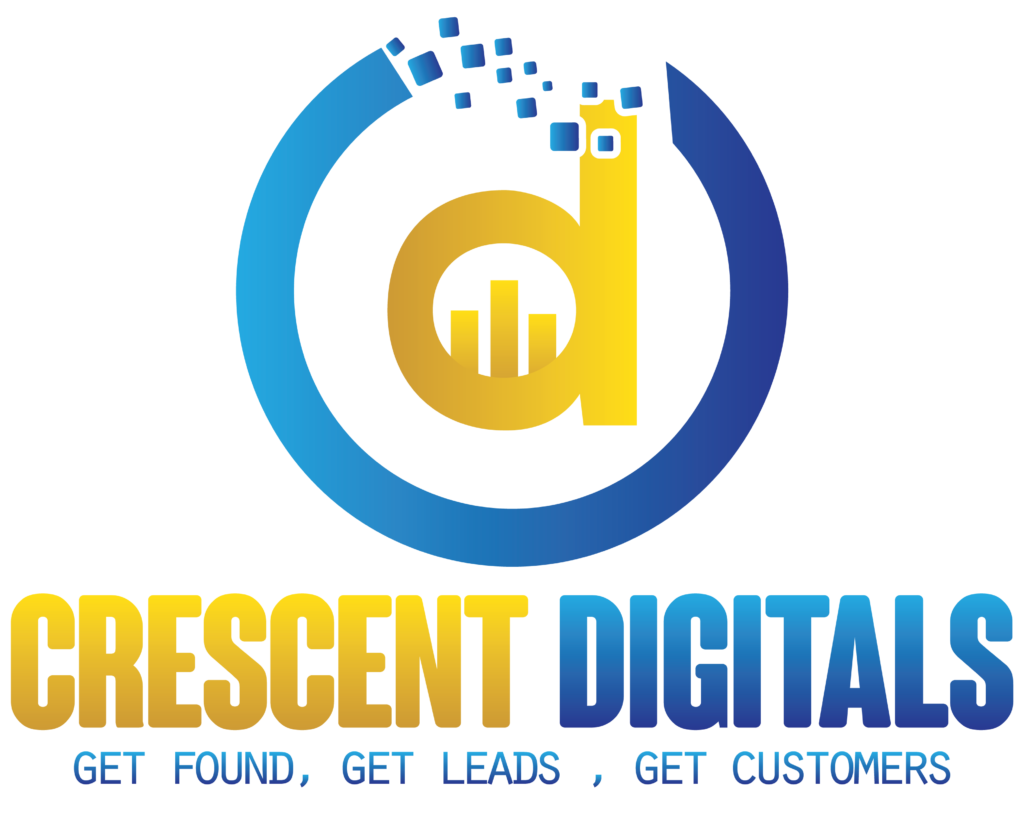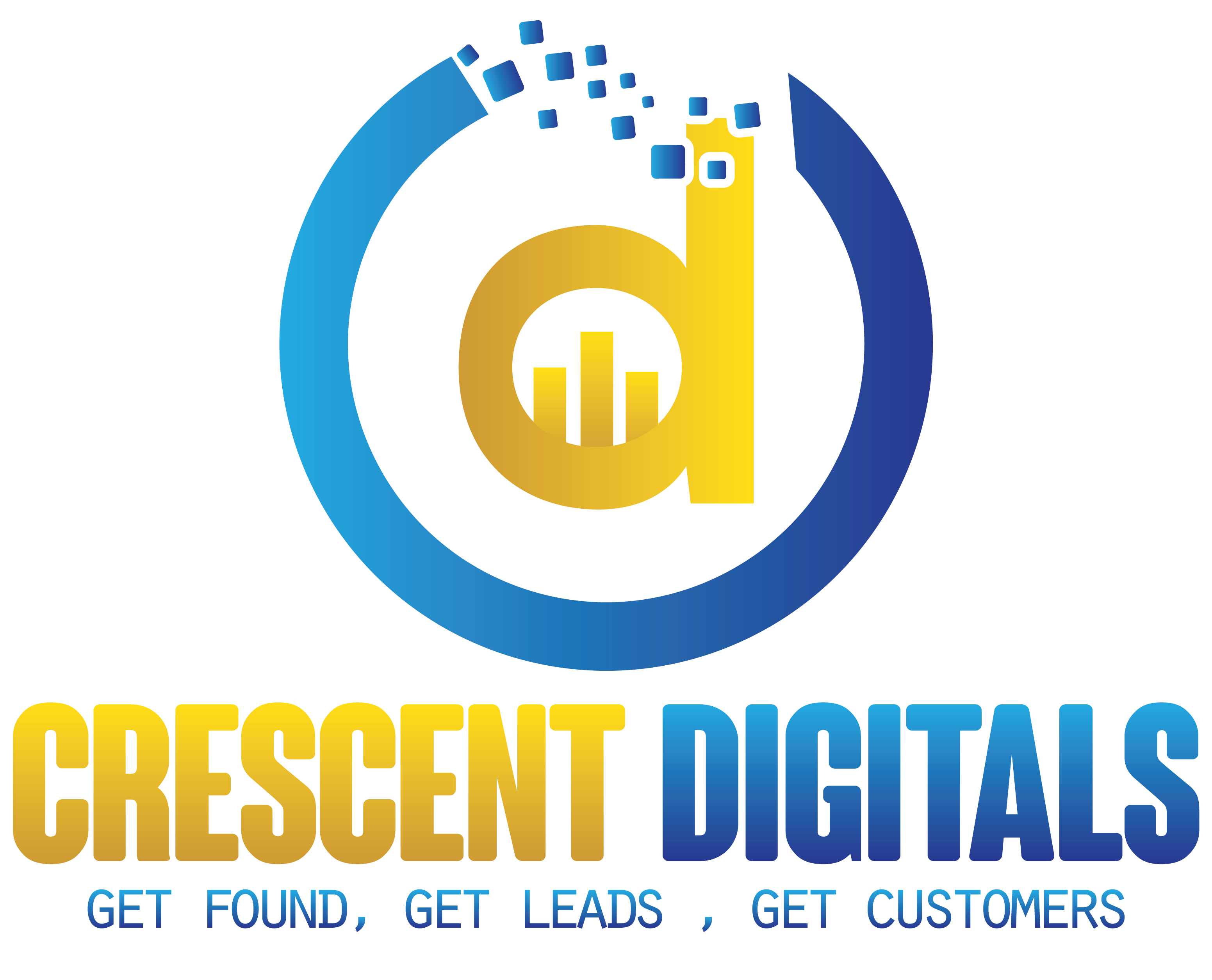How Does Online marketing work by leveraging various digital channels, such as social media, pay-per-click, search engine optimization (SEO), and email marketing, to connect with existing customers and individuals interested in your products or services? This allows you to track campaign performance on a day-to-day basis, helping you understand which channels are performing well and which ones need improvement.
With digital marketing, you can generate leads, build brand awareness, and drive sales by utilizing measurable analytics to optimize your strategies. By reaching potential customers through the channels they already engage with online, you can effectively promote your brand and achieve your business goals.

Credit: www.amazon.com
Understanding The Basics
Online marketing works by utilizing various digital channels such as social media, pay-per-click, search engine optimization, and email marketing to connect with existing customers and potential leads. It involves leveraging these channels to promote brands, generate leads, and measure campaign performance for optimal results.
Online marketing aims to reach and engage potential customers through the platforms they use frequently, such as websites, social media, search engines, and more.
What Is Online Marketing?
Online marketing, also referred to as digital marketing, is the practice of utilizing various digital channels to promote and advertise your brand, products, or services. It involves leveraging platforms such as social media, pay-per-click advertisements, search engine optimization, and email marketing to connect with your target audience. By understanding and leveraging the power of these digital channels, you can effectively reach and engage with potential customers and retain existing ones.
Exploring Digital Channels
Digital marketing encompasses a wide array of channels and strategies that work together to achieve your marketing objectives. Let’s take a closer look at some of the primary digital channels and understand how they contribute to online marketing success.
1. Social Media:
Platforms like Facebook, Instagram, Twitter, and LinkedIn provide businesses with the opportunity to reach and engage with their audience. With billions of active users, social media allows you to create compelling content, build brand awareness, drive traffic to your website, and generate leads.
2. Pay-Per-Click (PPC) Advertising:
PPC advertising, commonly associated with platforms like Google Ads and Bing Ads, enables businesses to display targeted ads to users who are actively searching for products or services relevant to their offerings. With PPC, you only pay when a user clicks on your ad, making it a cost-effective method to drive qualified traffic to your website.
3. Search Engine Optimization (SEO):
SEO focuses on improving your website’s visibility and ranking in search engine results pages (SERPs). By optimizing your website’s structure, content, and technical aspects, you can increase organic traffic, enhance your online presence, and attract potential customers who are actively searching for what you offer.
4. Email Marketing:
This channel involves sending targeted and personalized emails to your existing customer base and potential leads. Email marketing can be used to nurture relationships, share relevant content, promote offers, and drive conversions. It’s a valuable tool for building customer loyalty, encouraging repeat purchases, and generating revenue.
5. Content Marketing:
By creating high-quality, informative, and engaging content, you can attract, educate, and delight your target audience. Content marketing includes various formats such as blog posts, articles, videos, podcasts, infographics, and more. It helps establish your brand as a thought leader, improves your website’s search engine visibility, and fosters customer trust and loyalty.
These are just a few examples of the digital channels that play a crucial role in online marketing. By strategically leveraging the right channels based on your objectives, target audience, and industry, you can maximize your marketing efforts and achieve your desired results.
Remember, each channel requires a tailored approach and consistent monitoring and optimization to ensure your online marketing strategy is effective.
Creating A Digital Marketing Strategy
A digital marketing strategy allows businesses to connect with their target audience through various online channels like social media, paid ads, search engine optimization, and email marketing. By leveraging these channels, businesses can reach existing customers and attract potential ones to promote their products or services effectively.
create a digital marketing strategy? It involves understanding your target audience, setting clear marketing goals, and implementing tactics that align with your business objectives. Let’s delve into each aspect step by step.
### Defining Your Target Audience
Before you can create a successful digital marketing strategy, it’s essential to define your target audience. Knowing who your ideal customers are allows you to tailor your marketing efforts to reach the right people. Start by gathering demographic information such as age, gender, location, and income level.
Once you have these basic details, dive deeper into understanding your audience’s needs, pain points, and interests. Conduct market research, analyze customer feedback, and use online tools to gain valuable insights. Identify their motivations and challenges so that you can create content that resonates with them.
### Setting Clear Marketing Goals
Without clear marketing goals, your digital marketing strategy can lack direction. Take the time to outline your goals using the SMART framework:
– Specific: Clearly define what you want to achieve.
– Measurable: Establish metrics that allow you to track your progress.
– Achievable: Ensure your goals are realistic and attainable.
– Relevant: Align your goals with your overall business objectives.
– Time-Bound: Set deadlines to maintain focus and accountability.
Examples of marketing goals could include increasing website traffic, boosting online sales, growing email subscribers, or improving brand awareness. By defining your goals, you can prioritize your efforts and allocate resources effectively.
### Implementing Tactics
Once you have a clear understanding of your target audience and set marketing goals, it’s time to implement tactics and strategies to reach your objectives. Here are some essential elements to consider:
1. Search Engine Optimization (SEO):
Optimize your website content and structure to improve organic visibility in search engine results. Use relevant keywords, create high-quality content, and earn backlinks from reputable sources.
2. Social Media Marketing:
Leverage social media platforms to engage with your audience, build brand awareness, and drive traffic to your website. Tailor your content to each platform and use analytics to track performance.
3. Pay-Per-Click (PPC) Advertising:
Run targeted ads on search engines and social media platforms to drive qualified traffic to your website. Set a budget, select relevant keywords, and create compelling ad copy to maximize conversions.
4. Content Marketing:
Create valuable and relevant content to attract, engage, and convert your target audience. This can include blog posts, videos, infographics, podcasts, and more. Distribute your content through various channels to reach a wider audience.
5. Email Marketing:
Build an email list and leverage it to nurture leads, promote products or services, and build customer loyalty. Personalize your emails, segment your audience, and track metrics like open rates and click-through rates.
Remember, successful digital marketing takes time and continuous optimization. Regularly monitor your performance, analyze data, and make adjustments based on insights. By defining your target audience, setting clear marketing goals, and implementing effective tactics, your digital marketing strategy will drive meaningful results for your business.
Leveraging Different Digital Channels
Online marketing works by utilizing various digital channels, such as social media, pay-per-click, SEO, and email marketing, to connect with existing customers and potential leads. It allows businesses to track campaign performance and optimize their strategies for better results. Digital marketers play a crucial role in generating leads and building brand awareness through multiple channels.
Online marketing, also known as digital marketing, is the practice of utilizing various digital channels to promote and sell products or services. By leveraging different online platforms, businesses can connect with both existing and potential customers in a targeted and efficient manner.
Social Media Marketing
One powerful digital channel for online marketing is social media marketing. Social media platforms like Facebook, Instagram, Twitter, and LinkedIn offer businesses the opportunity to engage with their target audience on a personal level. With billions of active users, social media provides a vast and diverse pool of potential customers. Through strategic content creation, engaging storytelling, and targeted advertising campaigns, businesses can effectively build brand awareness, foster customer loyalty, and drive traffic to their website.
Pay-per-click Advertising
Another digital channel for online marketing is pay-per-click (PPC) advertising. PPC ads allow businesses to display ads on search engine results pages, websites, and social media platforms. With PPC advertising, businesses only pay when users click on their ads, making it a cost-effective marketing strategy. By targeting keywords, demographics, and specific online user behaviors, businesses can reach their ideal customers and drive targeted traffic to their websites, increasing the chances of conversions and sales.
Search Engine Optimization
Search engine optimization (SEO) is a crucial digital channel for online marketing. SEO involves optimizing a website’s content, structure, and performance to rank higher in search engine results pages organically. By implementing SEO best practices such as keyword research, on-page optimization, and link building, businesses can improve their visibility online and attract organic traffic from search engines like Google, Bing, and Yahoo. A higher organic ranking translates to increased visibility, credibility, and traffic, leading to more potential customers.
Email Marketing
Email marketing is another effective digital channel for online marketing. It allows businesses to directly reach their target audience through personalized and targeted emails. By building and nurturing an email list, businesses can engage with their customers, promote products or services, and drive conversions. Effective email marketing involves creating compelling content, using segmentation and personalization techniques, and analyzing and optimizing email performance to maximize engagement and ROI.
In conclusion, leveraging different digital channels is essential for effective online marketing strategies. By utilizing social media marketing, pay-per-click advertising, search engine optimization, and email marketing. Businesses can establish an online presence, generate leads, drive traffic, and ultimately increase sales and revenue. Integrating these digital channels into an overarching digital marketing strategy allows businesses to connect with their target audience, build brand awareness, and achieve their marketing goals.
Tracking And Analyzing Performance
Tracking and analyzing the performance of your online marketing campaigns is crucial for your success. It allows you to measure the effectiveness of your strategies, identify successful channels, and make data-driven decisions that maximize your ROI. Let’s explore the key aspects of tracking and analyzing performance in online marketing.
Measuring Campaign Performance
To measure the performance of your online marketing campaigns, you need to track various metrics and analyze the data. This includes monitoring website traffic, conversion rates, engagement metrics, and other key performance indicators (KPIs) specific to your goals. By measuring campaign performance, you can determine what is working and what needs improvement.
One effective way to measure campaign performance is through the use of web analytics tools, such as Google Analytics. These tools provide valuable insights into the behavior of your website visitors, allowing you to track their journey from initial interaction to conversion. By understanding how users interact with your website, you can make informed decisions to optimize your marketing efforts.
Identifying Successful Channels
Identifying the successful channels for your online marketing efforts is crucial for optimizing your resources. By analyzing the data gathered from your campaigns, you can determine which channels are driving the most traffic, conversions, and engagement.
For example, if you find that your social media campaigns are generating a significant amount of website traffic and conversions, while your email marketing efforts are yielding minimal results, you can allocate more resources to social media and adjust your email marketing strategy accordingly. This data-driven approach ensures that you are investing in channels that provide the best return on investment.
Making Data-driven Decisions
Tracking and analyzing the performance of your online marketing campaigns empowers you to make data-driven decisions. Instead of relying on assumptions or guesswork, you can leverage insights from the data to drive your marketing strategies.
By monitoring the performance of different channels and campaigns, you can identify trends, patterns, and areas for improvement. For instance, if you notice a decline in website traffic from organic search, you can investigate potential SEO issues and make the necessary optimizations to regain visibility in search engine results.
Data-driven decisions not only help you refine your marketing strategies but also allow you to adapt to changing consumer behavior and market trends. By staying agile and responsive to the insights gleaned from your tracking and analysis efforts, you can continuously improve the effectiveness and efficiency of your online marketing campaigns.
The Role Of A Digital Marketer
A digital marketer plays a crucial role in devising and implementing online marketing strategies for brands and businesses. With the ever-increasing reliance on digital channels, their role has become essential in driving customer engagement and promoting products or services. Let’s take a closer look at some key responsibilities of a digital marketer.
Conducting Market Research
One of the primary tasks of a digital marketer is to conduct thorough market research. By gathering data and analyzing market trends, they gain valuable insights into consumer behavior, preferences, and competitors.
They use various tools and techniques to identify target audiences and understand their needs, allowing them to develop effective marketing campaigns that resonate with potential customers.
Developing Engaging Content
High-quality and engaging content is the lifeblood of successful online marketing. Digital marketers are responsible for creating compelling and valuable content that captures the attention of target audiences.
Whether it’s blog posts, videos, infographics, or social media posts, they strategically craft content that educates, entertains and drives customer engagement. Through their expertise in content creation, digital marketers establish brand authority and build lasting relationships with customers.
Optimizing Websites For Search Engines
An essential aspect of online marketing is ensuring that websites are easily discoverable by search engines. Digital marketers optimize websites by incorporating relevant keywords, meta tags, and well-structured content to improve their visibility in search engine results pages (SERPs).
By staying up-to-date with SEO best practices, they drive organic traffic and increase the chances of attracting potential customers who are actively searching for products or services related to the brand.
Managing Social Media Platforms
Social media has become a powerful tool for online marketing, and digital marketers excel at managing social media platforms to promote brands and engage with audiences.
They create and curate captivating social media content, respond to customer inquiries, monitor online conversations, and run targeted advertising campaigns. Through their social media management skills, digital marketers foster brand awareness, drive website traffic, and generate leads that contribute to business growth.
Frequently Asked Questions Of How Does Online Marketing Work
How Is Online Marketing Done?
Online marketing is done through various methods such as email campaigns, social media, advertising, and SEO. The objective is to reach potential customers where they spend their time online.
How Do You Use Online Marketing?
Online marketing is used by leveraging digital channels such as social media, pay-per-click, search engine optimization, and email marketing. This allows businesses to connect with existing customers and individuals interested in their products or services. It involves tracking campaign performance to determine which channels are effective and optimizing websites for search engines.
Online marketing aims to reach potential customers where they spend their time online.
How Does Online Marketing Make Money?
Online marketing makes money by leveraging digital channels such as social media, search engine optimization, email marketing, and pay-per-click advertising.
This allows businesses to connect with existing customers and potential leads, promoting their products or services effectively. Through targeted campaigns and accurate tracking of performance, businesses can optimize their marketing efforts to generate revenue and drive sales.
What Are The Steps Of Online Marketing Process?
The steps of the online marketing process involve: 1. Conducting market research. 2. Developing content. 3. Optimizing websites for search engines. 4. Managing social media. 5. Generating leads and building brand awareness.
How Does Online Marketing Work To Promote Businesses?
Online marketing utilizes various digital channels like social media, SEO, and email to connect with customers and increase brand visibility.
What Is Digital Marketing And How Does It Benefit Businesses?
Digital marketing is the use of digital channels to market products and services, allowing businesses to reach a larger audience and drive sales.
What Role Do Digital Marketers Play In Promoting Businesses?
Digital marketers conduct market research, develop content, optimize websites, manage social media, and utilize analytics to generate leads and build brand awareness.
Does Online Marketing Really Work In Driving Sales And Business Growth?
Yes, online marketing has proven to be effective in driving sales and repeat business by reaching potential customers where they spend their time online.
What Are The Methods And Techniques Used In Online Marketing?
Online marketing includes email campaigns, social media, advertising, SEO, and more, aiming to reach potential customers through channels they already engage with.
How Can Businesses Use Online Marketing To Make Money?
Businesses can make money through online marketing by effectively promoting their products or services, attracting customers, and driving sales.
Conclusion
How Does Online marketing work by utilizing various digital channels, such as social media, search engine optimization, email marketing, and pay-per-click, to connect with existing customers and potential customers interested in your products or services? A digital marketer’s role is to generate leads, build brand awareness, analyze campaign performance, and utilize measurable analytics to drive business growth.
By leveraging web-based platforms and engaging content, online marketing aims to reach and engage potential customers where they already spend their time online. Ultimately, online marketing allows businesses to promote their brand, increase sales, and achieve their business goals in the digital age.






